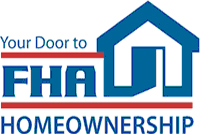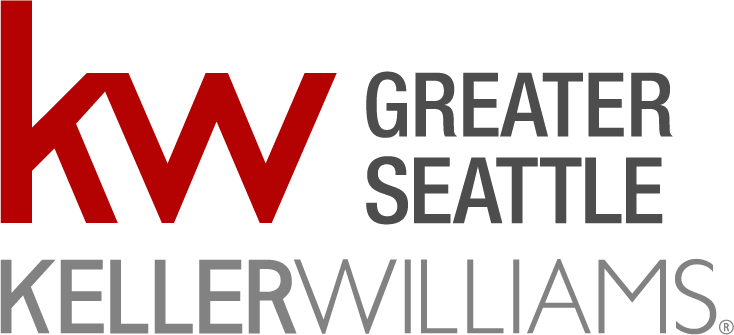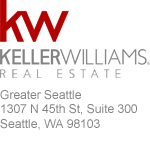FHA Primer
* Updated July 2011
With the credit crunch and constricting mortgage availability, FHA loans have recently become more appealing to buyers. Loan officers at Wells Fargo and Response Mortgage have told me they’ve seen a significant increase in FHA backed loan applications over the last few months. FHA is not a lender so they do not actually provide the funds. Rather, FHA insures loans that meet specific criteria, which is usually a bit more lenient than for conventional loans. As a result, FHA provides homeownership opportunities for people who may not otherwise qualify under conventional guidelines.
Here’s an overview of FHA benefits and requirements. The following is only a summary about the program and should not be considered exhaustive. Although, this provides a good starting point for buyers, for more concise information regarding FHA, please consult your loan officer.
Benefits of FHA loans:
- A minimum investment of 3.5%. This can include a combination of borrower paid down payment and closing costs, or gift funds. Most conventional loans today require 5% down or greater, not including closing costs. Some costs are excluded such as discount points, prepaid items, seller paid closing costs, etc.
- Lower minimum FICO requirement, making loans available to those who don’t have high enough FICO scores for a conventional loan. For the 3.5% down payment option, a borrower will need at least a 580 FICO score. For borrowers with a FICO score under 580, a 10% down payment will be required. Many lenders, however, require at least a 620 FICO score.
- More lenient qualifying ratios of 31% front-end (gross income / PITI) and 43% back-end (gross income / PITI + other monthly liabilities). The conventional loan qualifying ratios are 28% and 36%, respectively. FHA allows buyers to use a higher percentage of their income towards housing costs.
- People with bankruptcies may qualify. For Chapter 7, borrowers may be eligible two years from the discharge date. For Chapter 13, borrowers may be eligible while in repayment status.
- Allow for seller concessions and contributions up to 3% of the sales price. This is above and beyond the buyer’s 3.5% contribution. Examples of seller constributions include closing costs, prepaid expenses, discount points and interest rate buy-downs.
- Cash reserves are not required, except for 3 or 4-unit properties.
- Gift funds are acceptable. All funds can come through via a gift; the gifter must be someone close to the buyer such as family, significant other or friends with a justification letter.
- Loans are assumable, provided the prospective buyer qualifies.
- There is no pre-payment penalty.

Specific to FHA:
FHA loans are subject to a maximum amount depending on location. For King, Pierce and Snohomish Counties, the maximum loan amount is $567,500 through September 30, 2011 (as part of the housing stimulus bill). Thereafter, the maximum loan amount will decrease to $506,000.
FHA requires two types of mortgage insurance premiums (MIP) – up-front and annual. The up-front MIP is 1.00% of the base loan amount and can be added to the total loan amount or paid in cash at closing. The annual MIP is termed annual but paid monthly. On a 30-year fixed the premium is 1.15% of the base loan amount, which is applicable for a minimum of 5 years and cancelable when LTV reaches 78%. Two important notes regarding the annual MIP: 1) even if the LTV drops below 78% the buyer must wait 5 years before they can cancel the MIP, and 2) it cannot be canceled for condos.
One loan limitation. FHA only insure loans for principal residences, so buyers are limited to one FHA loan at a time. There are exceptions for relocation, increased family size, divorce and if the borrower is a non-occupant co-borrower.
Who is eligible for FHA?
- U.S. citizens
- Permanent resident aliens
- Non-permanent resident aliens – must have an SSN and hold a valid visa or is eligible to work in the US as evidenced by an EAD issued by the U.S. Customs and Immigration Service. Acceptable visas include H1, L-1, E-1, TN, A Series and G Series.
FHA is not available to non-citizens who do not have lawful residence in the U.S. or individuals with diplomatic immunity.
FHA Enhancements:
As a result of Congressional reform actions this year, several enhancements were made to the FHA program. The FHA appraisal requirements were relaxed, the required $150 seller fee is no longer necessary and processing and underwriting were streamlined and standardized. Other changes include the expanded qualifying ratios, the increase in borrower investment 3.5% and a change in the up-front MIP percentage.
FHA and Condos:
For condominium purchases the condominium development must be approved by HUD in order to be eligible for FHA loans. To view a list of approved condos, click here. In Seattle, there are currently 325 condominiums that are HUD approved, though the list may not be up-to-date. Search for FHA approved Seattle condos.
Fortunately, developers are paying heed. New developments and conversion projects have applied for HUD approval from the onset.
Given the ever constricting conventional mortgage loan availability, FHA is becoming an appealing option for many buyers, particularly here in the Northwest. For more information or questions about FHA, we recommend buyers speak to a mortgage loan officer who has experience with FHA loans. Or, contact us and we’ll put you in touch with our FHA loan specialists.
Here’s a few recent FHA resources from the ‘net:
– Let FHA Loans Help You, the official HUD/FHA website
– A Solution for FHA Buyers Searching for a Down Payment, The Mortgage Porter
– FHA is waiting to give you a loan, The Seattle PI





Great post, Ben. Buyers can actually still do 3% down with FHA until the end of this year. The 3.5% down payment requirement goes into effect Jan 1, 2009.
Ah, the 3.5% was supposed to go into effect on 10/1/08 but has seen been delayed until 1/1/09…that’s fantastic news for home buyer. Though the .5% savings isn’t much, every little bit helps
FHA loans are going to take over as the primier way for first time buyers to be able to buy a home. Its been a while since this has been the case and overall this loan is a good thing for borrowers they are a very good option for those with limited down payments and no mortgage history.
While I can see that this is good for buyers and for those selling their condos, I’m wondering if there is a downside to the condominium association itself. With a small condominium building (nine units that have sold and resold over the years to people who either paid cash or had conventional loans with large down payments), does anyone anticipate increased potential for financial hardship on the association with a larger number of first-time buyers with low down payments and possibly more checkered financial pasts?
In regards to the annual MIP – this is the first time I’ve heard that it cannot be canceled after 5 years for condos. Does this mean I am doomed to pay mortgage insurance on my condo for 30 years? Thanks for your help…great post.
pablocjr – Should you keep your loan with FHA then you’ll be paying the MIP for the life of the loan. You many want to consider refinancing when the LTV reaches 80%. Depending on loans/rates available it could be beneficial to refinance and eliminate the MIP.
Ben – thank you for opening a dialogue on this. I have heard that recently FHA on the West Coast has effectively stopped approving projects. That is – approvals have come to grinding halt while the files are being over conditioned. The guidelines that used to go by the wayside are now being nit picked and communities that would have been approved 9 months ago are stalled out in approvals today. This has put the pinch on 1st time buyers interested in these communities and the lenders trying to help them. Have you heard anything on this?
Anne – I’ve heard that it is much tougher to get a project approved and the have been very few approval lately. Though, a number of conversions (given how long they’ve now been on the market) have gotten HUD/FHA approved, though that was before the bailout.
What a difference a year makes. FHA is now the dominant lender in most areas. Before this year I rarely did an FHA purchase, but this year most of my buyers have used FHA or VA loans. Hopefully FHA will again allow down payment assistance programs again sometime soon.
A Hoving, we’re having similar experiences here in Myrtle Beach. It’s killing first time home buyers and the neighborhoods they love to live in. Something has got to give.
For FHA spot loans, here’s a list of some guidelines:
The homeowners association cannot have a right of first refusal restriction on sales.
Condominiums must provide undivided ownership of common areas by unit owners.
The condominium project cannot be subject to additional phasing or annexation.
No special assessments or legal action can be pending against the association.
Common areas must be under the condo association’s control for at least one year.
At least 90 percent of the total units in the condo project have to be sold.
At least 51 percent of the total units in the project must be owner-occupied.
No adverse environmental factors affecting the project or units are allowed.
No single entity can own more than 10 percent of the total units in the condo project.
The units must be owned in fee simple or held under a lease hold acceptable to FHA.
For projects over 30 units, no more than 10 percent of the units can have FHA loans, and for projects of 30 units or less, no more than 20 percent of the units can have FHA loans.